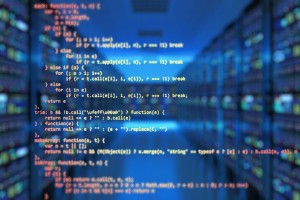Remote sensing and geo-informatics
The Remote Sensing and Geo-Informatics program focuses on the application of modern remote sensing and geoinformatics technologies in spatial data analysis.
Students can gain advanced knowledge in acquiring, analyzing, and interpreting data from various remote sensing sources such as satellites, airborne, drone LiDAR scanners, thermal cameras, and much more.
They learn about the latest image processing tools and techniques, machine learning, and geospatial data analysis. Students acquire skills in programming, 3D modeling, data visualization, and geospatial information management.
Dla kogo studia na kierunku remote sensing and geo-informatics
Master program Remote Sensing and Geo-Informatic designed for both engineering and bachelor’s degree graduates who are interested in gaining knowledge and skills in the field of remote sensing and geoinformatics.
Program kształcenia na kierunku remote sensing and geo-informatics
See details on the web site.
Przedmioty maturalne i zasady rekrutacji na kierunku remote sensing and geo-informatics
Candidates have to take an entry exam. Average from studies is also included.
Perspektywy pracy po kierunku remote sensing and geo-informatics
Graduates can work in various sectors including:
- environmental protection,
- spatial planning,
- scientific research,
- crisis management,
- urban planning,
- agriculture,
- energy,
- transportation.
Opinie o kierunku remote sensing and geo-informatics
Kierunki pokrewne do kierunku remote sensing and geo-informatics
Jakie uczelnie oferują kierunek remote sensing and geo-informatics
W których miastach można studiować kierunek remote sensing and geo-informatics
Komentarze (0)
Zobacz również

Studia informatyczne w Białymstoku i woj. podlaskim

Studia informatyczne w Gdańsku i woj. pomorskim

Studia informatyczne w Katowicach i woj. śląskim

Studia informatyczne w Kielcach i woj. świętokrzyskim

Studia informatyczne w Krakowie i Małopolsce

Studia informatyczne w Lublinie i woj. lubelskim

Studia informatyczne w Olsztynie i woj. warmińsko-mazurskim

Studia informatyczne w Opolu i woj. opolskim

Studia informatyczne w Poznaniu i Wielkopolsce

Studia informatyczne w Rzeszowie i woj. podkarpackim

Studia informatyczne w Szczecinie i woj. zachodniopomorskim

Studia informatyczne w Toruniu, Bydgoszczy i woj. kujawsko-pomorskim

Studia informatyczne w Warszawie i na Mazowszu

Studia informatyczne w Zielonej Górze i woj. lubuskim

Studia informatyczne w Łodzi i woj. łódzkim















































































































































